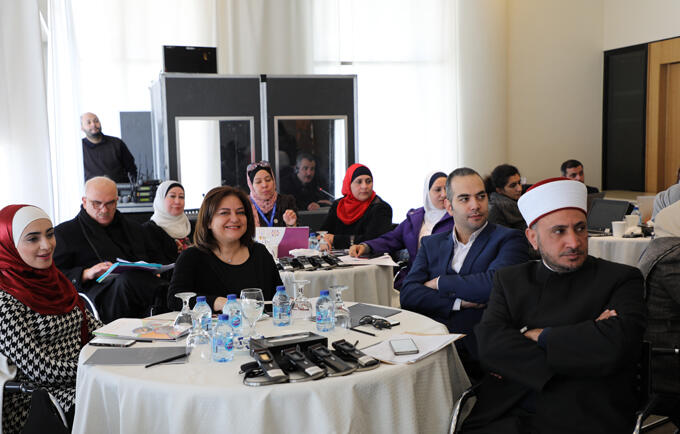Amman, Jordan – 13 February 2020 – Within the framework of a new initiative organized by the United Nations Population Fund and the International Development Research Center, the First National Consultation on Civil Registration and Vital Statistics was held today Wednesday 13th of February at the Kempinski hotel, Amman, to discuss the advancement of vital events registration in Jordan.
The national consultation was led by the Jordanian Civil Status and Passports Department in coordination with the Department of Statistics and convened 20 national and international bodies including UNHCR, WHO, NRC, ARDD and others, to explore the potential of establishing a national platform on advancing civil registration and the culture of vital statistics in Jordan.
During his speech, Dr. Qassem Al Zoubi, Director General of the Department of Statistics in Jordan, highlighted the importance of establishing a national platform and added “we are working on building and developing capabilities and systems and we look forward to developing staff capabilities through the national platform” stressing the importance of vital data today for all groups, especially for decision makers.
On the other hand, Mr. Bouchta Mourabit, Humanitarian coordinator at the UNFPA Office in Jordan, pointed out to the key role Civil Registration and Vital Statistics play in achieving the Sustainable Development Goals and applauded the Jordanian experience in terms of organizing the registration process, despite the many challenges.
For her part, Barbara Shenstone, IDRC Regional Director, emphasized the importance of Death registration “When deaths are not registered, the dead person remains legally alive, making it impossible for spouses, children and families to inherit, and for the surviving spouse to legally remarry. This in turn can deprive women of assets, reduce family income, and increase poverty.” She noted that not registering deaths compromises the accuracy of a country’s population data, which can undermine a government’s capacity to plan and make good policies for the wellbeing of everyone.
Irina Dincu, IDRC Senior specialist pointed out that Civil registration is the cornerstone of SDG agenda. “Without having documentation to protect them and facilitate access to services, people may be deprived of some fundamental rights. Without reliable vital statistics disaggregated by sex, age and geography it would be difficult for governments to develop and implement policies for the most vulnerable.”
Irina added “Civil registration documentation is important for all, but critical for women and girls. Without proof of vital events, women do not only pay a cost, but there is an inter-generational cost for females in particular”
This event identifies key priorities, challenges, mandate, and areas of action for a future CRVS National Working Group and a National Strategy in the context of the SDGs and national population data systems, social justice and gender empowerment.


